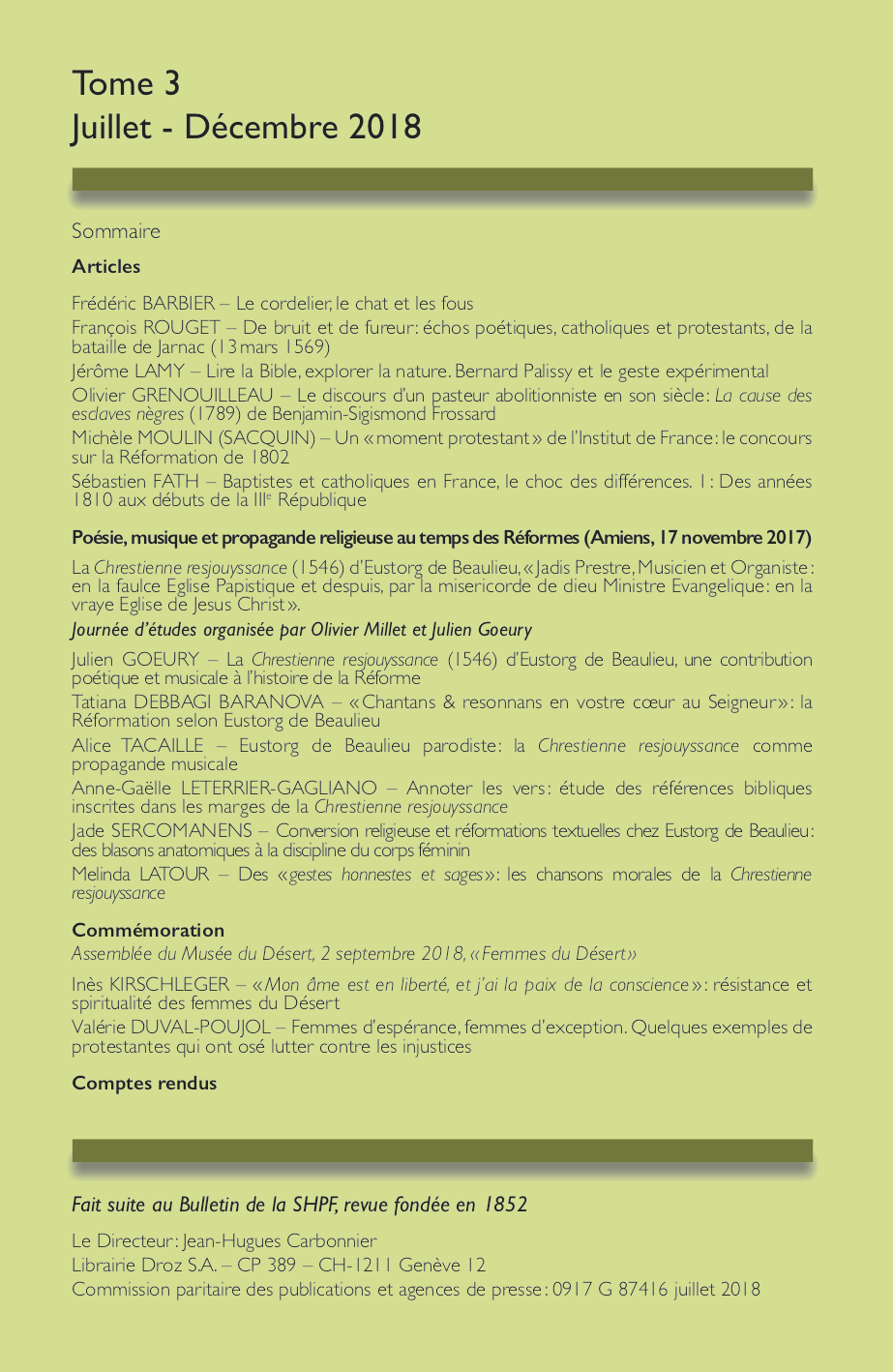Baptistes et catholiques en France, le choc des différences
1 : Des années 1810 aux débuts de la IIIe République
Abstract
Until the beginning of the Third Republic, Protestantism had managed to reintegrate itself in French society in a variety of ways. As newcomers, Baptist churches began to gain a hold in France during the 1810s. It was only by the process of converting others that they managed to function. With their proselytising élan, they took their stand against a Catholicism that continued to hold a largely dominant position and refused to allow a competing offer of salvation to spread in its parishes. This article aims to highlight and analyse the “clash of differences” launched by Baptist evangelisation with a view to Catholics from ca. 1810 until the mid-1870s. The Catholic clergy’s response from the beginning of the nineteenth century witnesses a powerful mobilisation on their part, within the wider framework of the tension between Catholic reconquest and revivalist proselytism (I). Prior to the law of 28 July 1881, by which French cemeteries were secularised, funerals represented a place where conflicting views became particularly visible. The Baptist response during the period in question was marked above all by an aggressive Anti-Catholicism (II). Borrowing from the repertoire of other Protestants, Baptists represented Catholicism as a countermodel. In their eyes, Catholics were the defenders of the monist model of the Ancien Régime, over against the primacy of the voluntary association of converts promoted by Baptists themselves.
